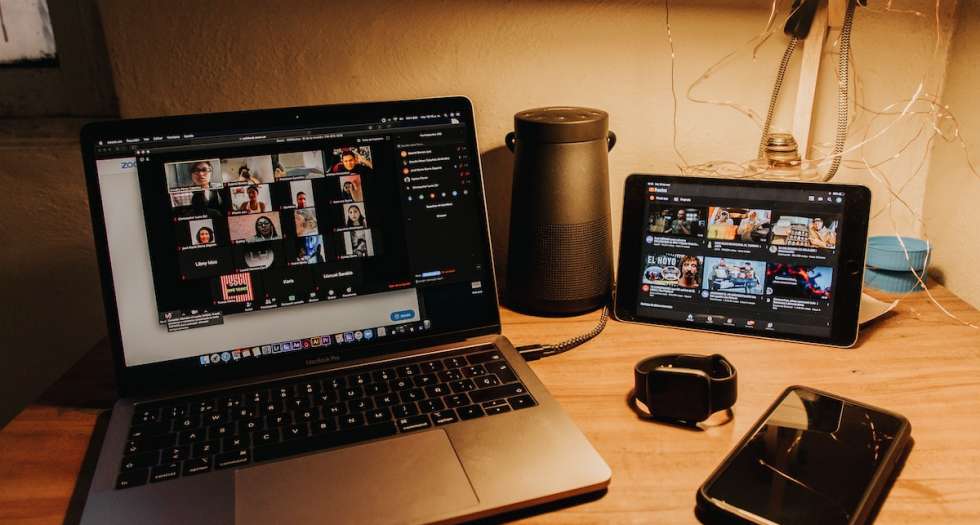It’s a myth that working with offshore teams is risky and a bad business decision. In fact, it has the opposite effect as companies can access top tech talent, accelerate product development, and much more cost-effectively.
However, like anything in life, it’s not exactly straightforward. You must put in the effort to make it work. For example, whether you decide to outsource your project or augment your in-house development team, you still must delegate tasks and manage each software engineer efficiently.
As it’s challenging to build rapport with your team remotely, you must get creative when it comes to building trust and a healthy working relationship. After all, you can’t exactly see them all and engage them physically as you would in a team-building scenario.
So, what can you do to build a healthy and close relationship with your offshore development teams? Let’s look at the following tips.
1. Invest Some Time in Staff Orientation
When you hire remote developers and extend your in-house development team, it’s vital to make your requirements and expectations clear. This process starts with clearly communicating your needs to your outsourcing partner.
If you have standard protocols to onboard new employees, adapt them to suit a remote development team. This approach will help them get a better idea about your company and corporate culture.
2. Try to Understand What’s Missing
When we physically work closely together, you pick up on a variety of non-verbal signals. However, it’s not (exactly) the same in a remote development setting. While you can see their faces on a Zoom call, you can’t really see a person’s body language when you communicate with them.
It’s also a challenge to truly know someone’s personality when you don’t see them. For example, you might not know if a colleague is an introvert or an extrovert. As a result, it’s your responsibility to take your time and get to know each remote developer. This way, you can adapt your communication style to suit each individual whenever necessary.
When there’s distance, you won’t know things like the impact the room temperature has on productivity. You won’t know when someone doesn’t want to be interrupted. However, in this scenario, you must take this into consideration before making an unscheduled phone call.
Because of the distance, language, and cultural barriers, there’s plenty of room for individuals to take things out of context. So, it’s best to try early on to make people feel comfortable and build strong connections.
3. Always Transparent and Accessible
When working with an offshore extended development team, you must make a considerable effort to engage them. Whenever this is the case, make yourself easily accessible and keep things transparent. You can do this by scheduling regular meetings, providing daily updates, and keep track of how the project’s coming along.
It’s also important to always share your schedule with them. Let them know whenever you’re free for a quick discussion. Always be approachable and transparent. This will make a difference in the long term. It can also help alert you to potential problems before they become a massive issue.
4. Utilise Multiple Communication Tools
As seamless communication is critical, it’s important to use available communication and collaboration tools to enhance interactions within the team. As such, regular video meetings are encouraged. Schedule video conferences whenever possible. Although it might be easier to chat, it does help to look people in the eye while speaking to them.
However, keep things professional. This means don’t conduct team meetings in your pyjamas. Don’t look like you just crawled out of bed, as that doesn’t send the right message. After all, you have to lead from the front and lead by example.
By keeping it professional, they will know that they are working “with” you and not “for” you. Communication tools also help the team bond and form interpersonal relationships. This makes it important to encourage the team to communicate using different communication and collaboration tools. These days, we’re spoiled for choice. Choose one or more and stick to it.
5. Always Be Open and Accommodating
Let’s face it. There are going to be some differences between you and your remote development team. So, it’s essential to take simple steps to accommodate various team members and keep them happy.
For example, you can consider their time zones when scheduling meetings. Making an effort to correctly pronounce names also goes a long way in building a rapport between project owners and the team.
You can also learn to greet them in their language and celebrate their holidays. These small but meaningful gestures will help bring everyone together and avoid conflict down the road.
6. Eliminate Ambiguity
When there’s a lack of clarity, things can quickly go wrong. Ambiguous language can lead to contract disputes and more if it’s not dealt with properly. When your colleague isn’t a native speaker, they may not understand the nuances in language. This is important, and you should always be aware of it.
To make sure that there’s no ‘grey area’ when communicating with your team, always encourage your remote developers to ask questions. If they don’t understand something, it’s best to address it immediately.
7. Respect the Service Level Agreement (SLA)
Most outsourcing partners offer SLAs. These documents reflect the environment, the degree of changes required, and the complexity of the project. High-level agreements also demand the partner provide redundant infrastructure or upgrades.
Furthermore, outsourcers are also sometimes required to hire more staff and engage in boot testing. If you have a unique operating environment, there’s a good chance that you’ll pay a premium for it. So, carefully investigate the different options available to you before committing.
8. Make Time for Chats
In a traditional workplace setting, you and your team are destined to socialise. Whether it’s lunch, coffee, or drinks after work, social engagements help bring people together. This makes making an effort to chat with remote team members vital to project success.
So, make time to chat with your staff. Ask them how their day was, or ask them what they did over the weekend. You can converse about any number of things. Just take that extra step to do it. It’s also a good idea to celebrate birthdays!
9. Always Be Considerate
If the offshore team speaks a different language or comes from a different culture, they might find it challenging to articulate and express themselves. Consideration is critical in this scenario. You can also make them feel more comfortable by taking an interest in their culture. But ensure that they are always genuine and respectful questions.
In conclusion, healthy relationships are all based on effort. The same is true when it comes to offshore software development. Engaged employees can quickly go from good to great, so make an effort to build strong relationships.
Do you need help putting together an extended offshore development team? We can help. Schedule a commitment-free consultation.

